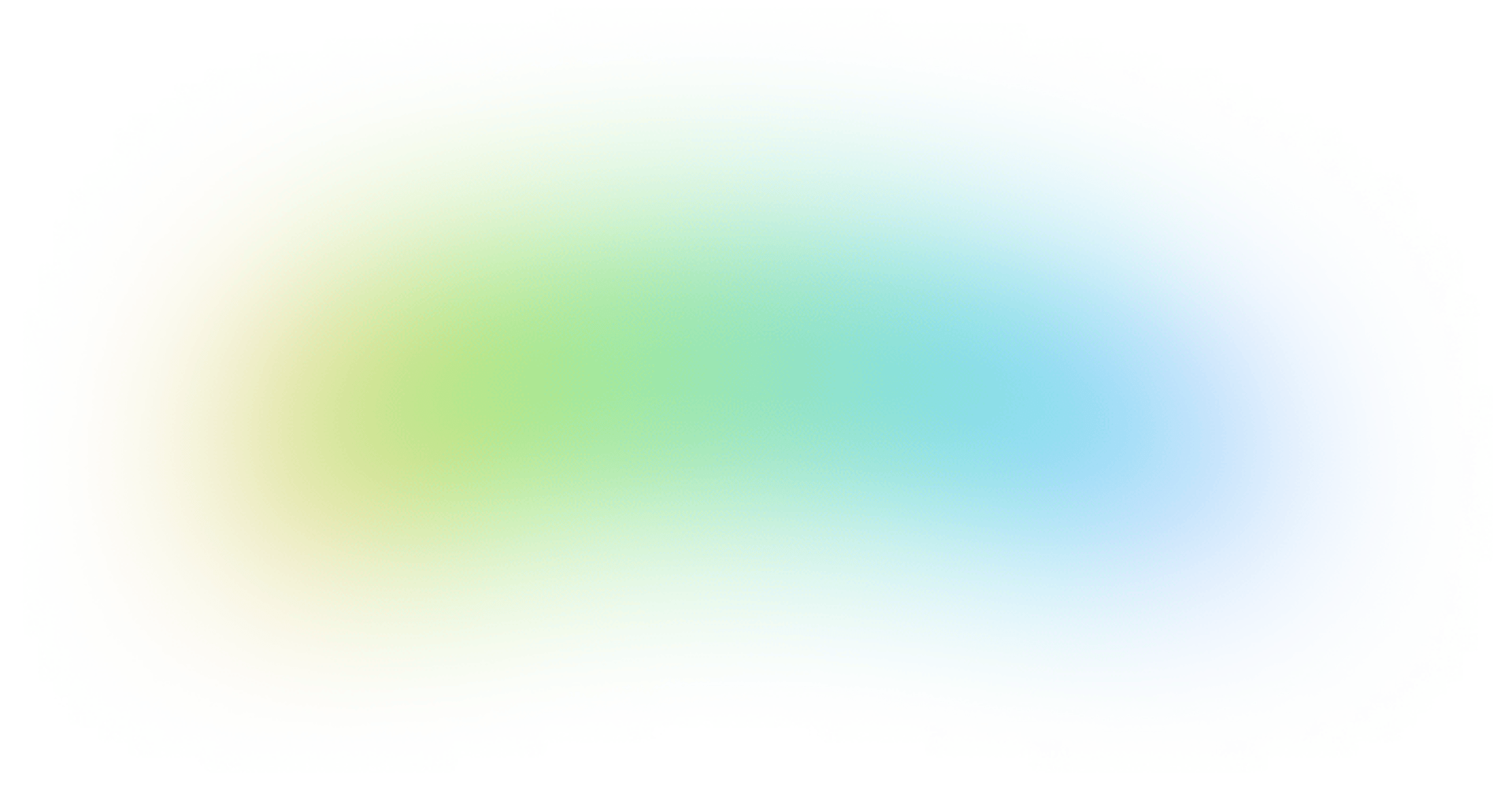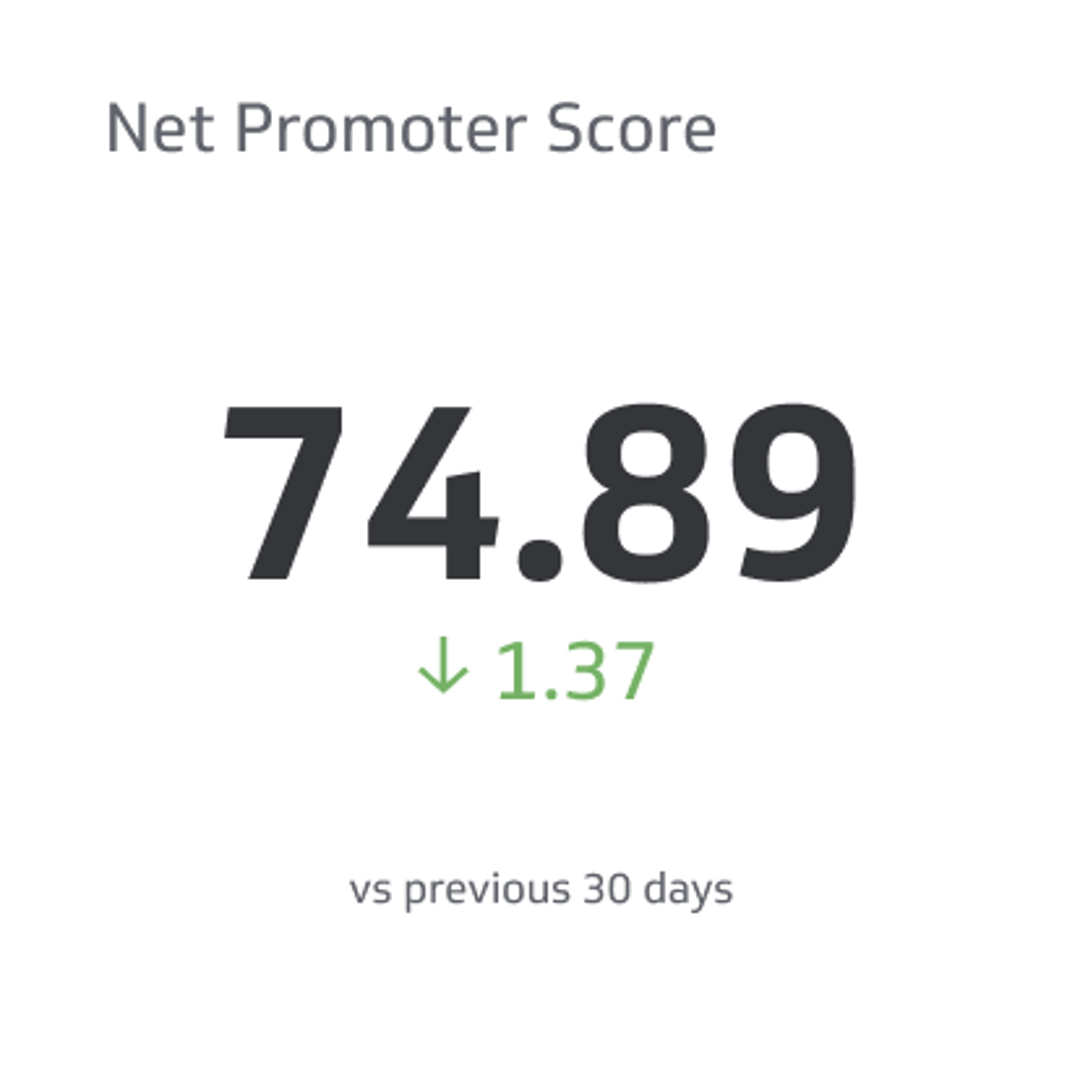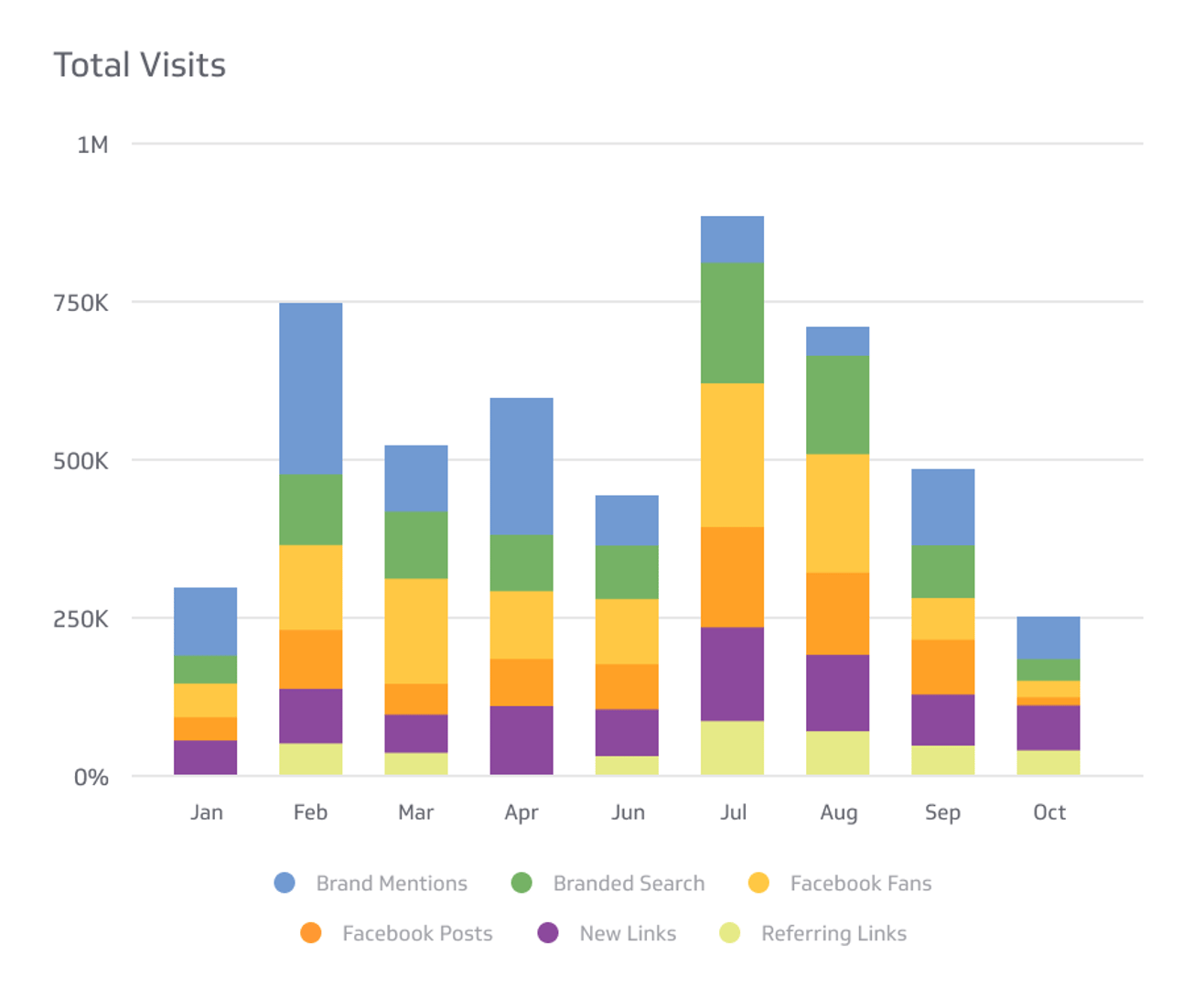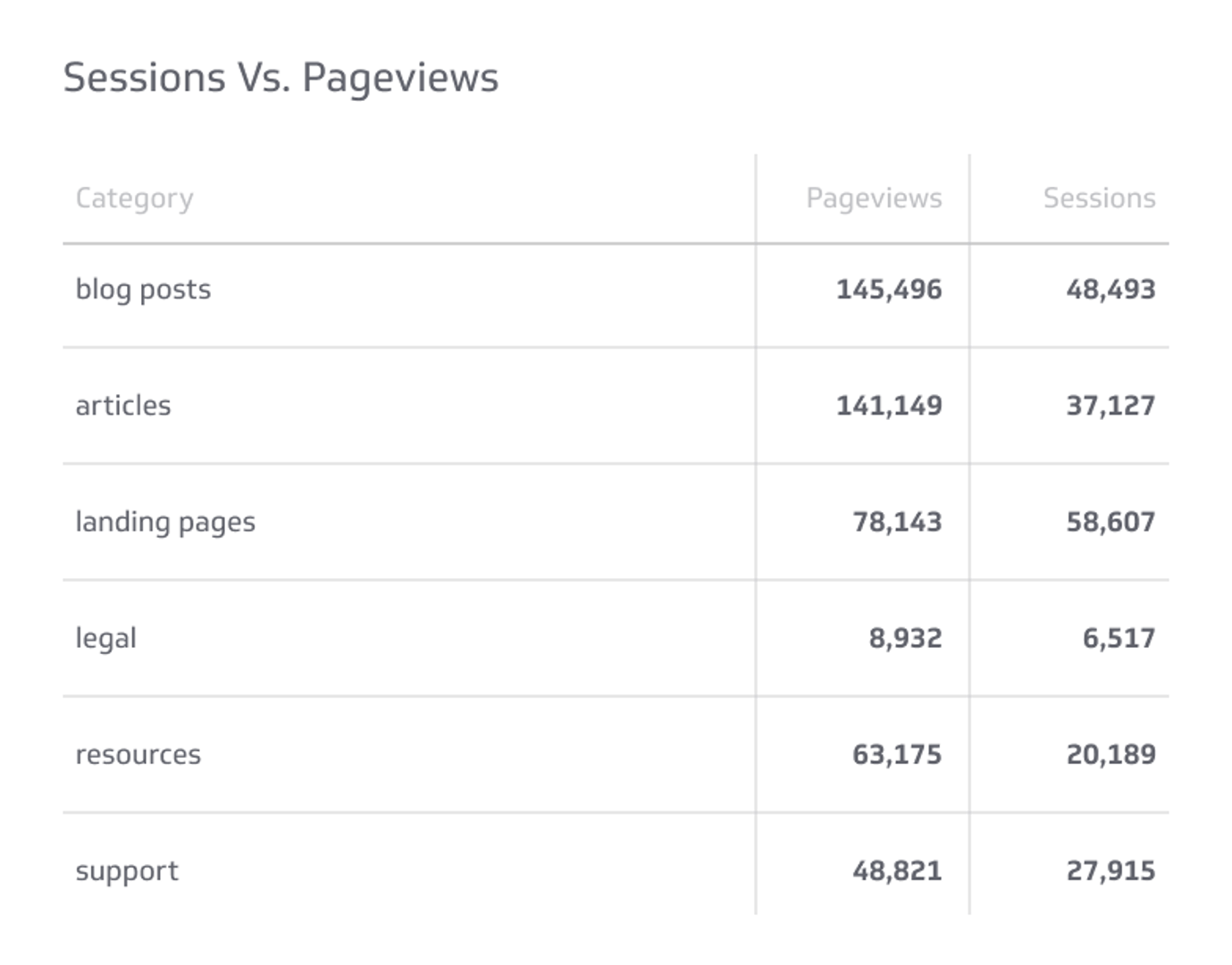Sessions
It’s a metric that allows you to learn more about your potential clients, customers, and consumers.
Track all your Digital Marketing KPIs in one place
Sign up for free and start making decisions for your business with confidence.
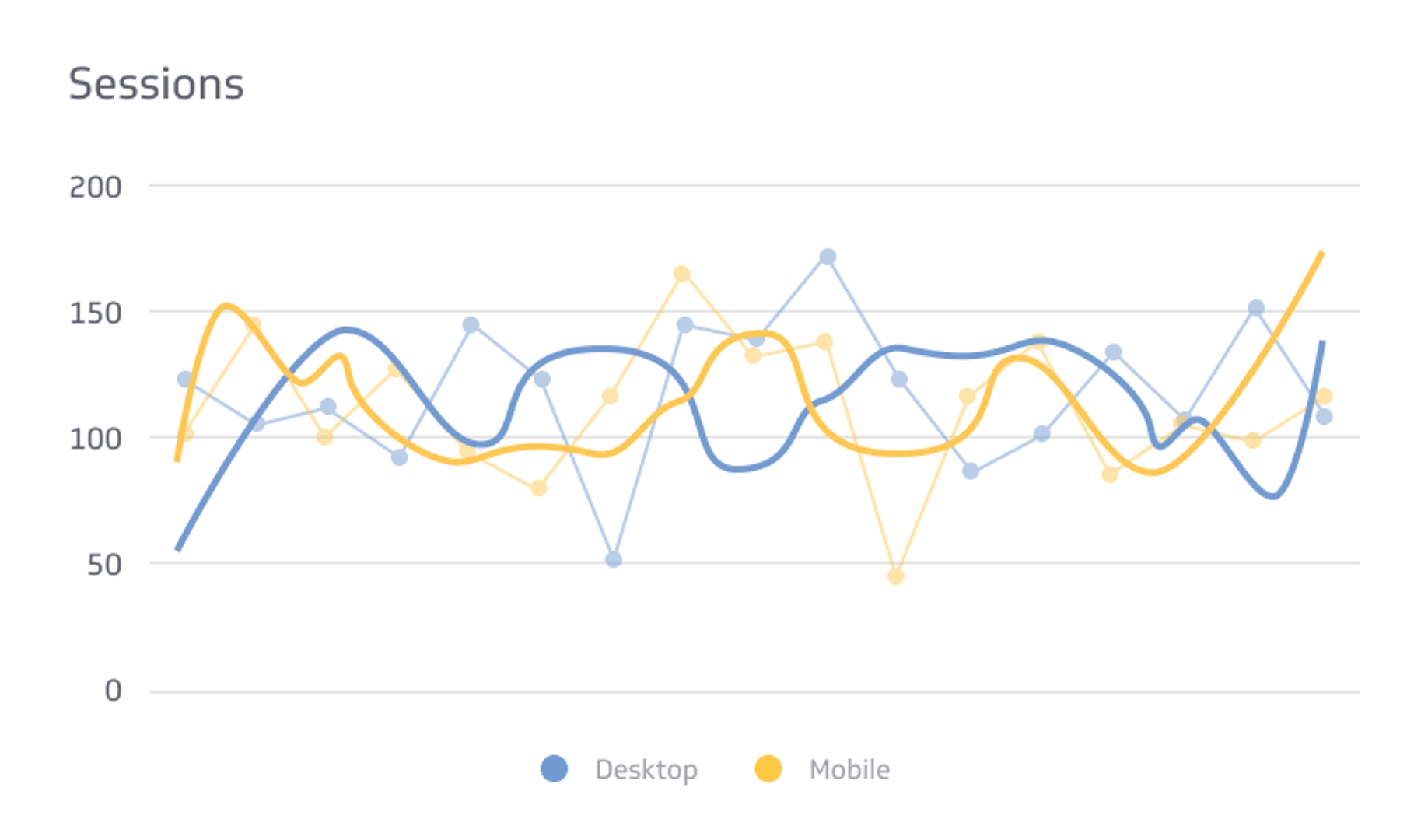
The term “sessions” is about as amoeba-like as an IT, web, or data analysis term can get. It can mean just about anything to anybody, which makes defining what it is and why it is important extremely challenging. So, exactly what is a session? Are app sessions the same as sessions on a website? Does a user engaging a website from a link count as a session, even if they only stay on a page for a few seconds?
Is there a clear definition for what constitutes a “session” versus a visit? Does a session still count if someone visits a site and walks away from their computer? Are there sessions that are more productive than others? The following descriptions will attempt to define a session from the data analysis perspective. It will also explain why the definition is important and what it means for marketing, app development, and user habits.
What Is a Session?
Technically, a session is any time spent on any specific activity. In the IT, web, and development realm, a session is any amount of time spent on a specific program, app, or website. A session can be started by any intentional act that engages the program, app, and website and continues, depending on predefined parameters, until the user disengages.
For example, if you access a website, your time is logged and tracked, not in a way that identifies who you are, but rather what you, as a user, visited. Accessing the website is a session, and it extends to other pages you visit while on that website.
There are different criteria for categorizing when a session ends. Google Analytics, for example, terminates a session after you leave a site or after 30 minutes of inactivity.
The Sand Pail Analogy
An easy way to understand how data is tracked and documented is to envision a session like a sand pail. Each website or app you visit is an individual pail. Things you put in the pail, say sand, shells, and a plastic shovel, represent pages you visit within that sand pail. When you go to another website, you start a new sand pail.
Using the sand pail analogy, if you were to visit ESPN’s website, it would count as a sand pail. If you click on a specific sports page on the ESPN website, that page would count as an item in your pail. Clicking on an article on that page would count as another item.
If you then visited an advertising link on the ESPN site, your ESPN session would end, and a new session would begin.
This logic applies to apps as well. When you open an app, it kicks off your session on that app. If you spend five minutes on the app, your session will be counted as five minutes. If you spend two hours on the app, that will count as well.
Likewise, if you visit a website or another app from the initial app session, your initial session will be extended. If you terminate your time on that app, your session ends.
What Is a Web Session?
In the simplest of definitions, a session is the time a person spends on a website. There are multiple ways a web session can be initiated.
Direct Address Input
First, a user can look for a website using its direct address. If you want to visit Reddit, for example, and enter https://www.reddit.com into your browser address line, your session on Reddit starts once the website loads. That session ends when you leave the site.
A session will still be considered active even if you click on a post on the Reddit site. If you click on a link on a post and go to another website, the Reddit session will end, and a new session will begin. Both the new session and the link you clicked on will be tracked and documented.
For more commercial sites, like, one for a restaurant or apparel retailer, an unsolicited visit is tracked, as well as how long you stay on the site and any pages you visit. If you look at a promotion on that site, the visit to the promotion is documented. Some organizations might count that as a separate session altogether.
Link Clicks
If you click on an advertising link to go to a specific website, you start a session when that site loads. How long you stay on the linked site is counted, as are any other pages on the site you look at. If you click on a link and immediately leave, that is also tracked.
Web Search Results
When you click on a link after performing an online search, your session begins once the page you clicked on loads. When you visit a page on the search result page, your session continues under the web search link. Your session ends when you leave that site altogether.
Internal Links
Internal links in a document lead you to specific websites. They can be informative, a marketing tool, or a direct link to a specific site. With internal links, you start a session when you access a website via one. Your session is extended if you go to another page on that linked site. Once you leave that link, either to return to the initial page or another site, your session ends.
Every website session includes visits to separate pages, button clicks, and transactions.
Users Versus Sessions
A user is an individual visitor to a website. The session is the time that the user spends on the website. User versus sessions is an important digital marketing metric and comparison as some users will repeatedly go to one website, racking up multiple sessions of variable time. In contrast, others will stay on that website even if they are visiting other websites.
For example, many interested voters will watch election returns on various websites on election night. Each site one user visits counts as an individual session, even though that user might have several websites open at once. The session does not end until the user leaves a site.
Some users might access one site and leave it up for hours until all the returns they are interested in have been recorded. In this case, the session lasts until the user leaves the website.
Other users, though, might log onto several websites and leave them repeatedly throughout election night as returns are reported. Once they have the data they want, they leave. They will revisit the site or sites as needed throughout the night. In this case, a session is created each time the user accesses a website. Every time they close the website, the session ends.
What Is an App Session?
An app session is very similar to a website session. The technical definition is that an app session occurs when a user engages in an app at any point after that app has been installed on a smart device. Defining the parameters of an app session can be tricky because app users do not behave exactly like website users.
For example, you might access the web on one app and also be texting a friend. In the background, you might be listening to a music app. Within an app, you might be part of a group or switch groups, terminating a session on the app, at least in theory. At the same time, you might have a chat service that you leave up in the background so you can chat as needed.
The different possibilities of what would be called sessions are endless. Because of that, most analysis tools view a session as active engagement with no pause longer than 30 minutes, but only when the app in question is in the foreground of the smart device.
How an App Session Is Measured
So, suppose you have Messenger, chat, a web browser, your bank’s app, and the weather open at the same time. When you engage one of those, if there have not been 30 minutes of dormancy between your engagements with that app, you are considered to have started a session.
When you toggle between apps, only the foreground apps count toward a session’s time.
That session ends when 30 minutes of inactivity pass or you shut down the app. This approach helps account for toggling between or leaving apps up for hours in the background.
Why Track a Session?
In and of itself, a session on the web or a smart device is not terribly insightful. There are multiple ways accessing a website might be a mistake versus genuine user interest. As the app scenarios show, there are also multiple ways an app might be open but not engaged or engaged several times in a defined period.
Knowing when that happens, with few exceptions, is not valuable. You can, for example, click on a link thinking you want to see the sponsor of the link only to discover it is not what you thought or you are not really all that interested in the product or service once you see its website.
You can also accidentally click on a link, particularly if you use a smartphone to peruse the web. Practically, those types of quick-hit sessions do not provide much insight, except in extraordinary circumstances.
Website Session Tracking Value
If you want to know the answer to the question “what is a session,” then you need to know how web session tracking adds value. A website session can be a valuable analysis tool as it gives insight into the thought processes of the average visitor to a site. Taking into consideration other analytics, an organization can figure out what type of visitor you are.
If you visit a used car site, for instance, and only look at trucks and SUVs, knowing that can help build an accurate customer profile. When those types of profiles are prolific on a website, a marketer can take that data, match it to other data and create a profile that an organization can use to enhance a website visit, sell the visitor something or otherwise engage them.
For longer stays on a website, a session can gauge initial interest in an advertisement, product, service, or organization. The length of stay can help gauge the effectiveness of the website.
How many people visit the site and initiate sessions can provide data on how catchy an advertisement is or how popular a product, organization, or service is.
Short Site Visit Exceptions
While short sessions are not necessarily helpful to someone trying to analyze web traffic, there are exceptions. If, for instance, a website experiences several visits of exceptionally short duration, it could indicate a problem.
A link might be broken or be taking people to the wrong website. It could also be that the advertisement a user clicked on is misleading. Finally, it could be that users view verbiage with the link as misleading or, worse, as clickbait.
In any of those situations, the reputation of the destination website’s owner can be damaged, which is why it is good to know if many people are getting on a site and quickly leaving.
App Session Value
The most valuable information an app can yield is insight into user behavior. If you access an online game repeatedly throughout the day, someone looking at that data can assume it is a good place to market products to you. Likewise, if you access an app once in a while, the app owner can conclude reasonably that to get you to open it more, changes are needed.
Another benefit to tracking app sessions is that it lets owners gauge mass popularity. An app that gets hundreds of views a day might indicate a very select, niche market opportunity. An app that gets millions of daily visits might indicate a marketing gold mine in the making.
Sessions Can Be Valuable Tracking Tools
So, what is a session? It’s a tool that allows you to learn more about your potential clients, customers, and consumers.
If you can tell when, why, and how long a user visits your site or app, you can make assumptions about that user. That can help you enhance their experience or determine marketing strategies. You must, however, use common sense when analyzing sessions, or you could make misleading assumptions.
Related Metrics & KPIs
